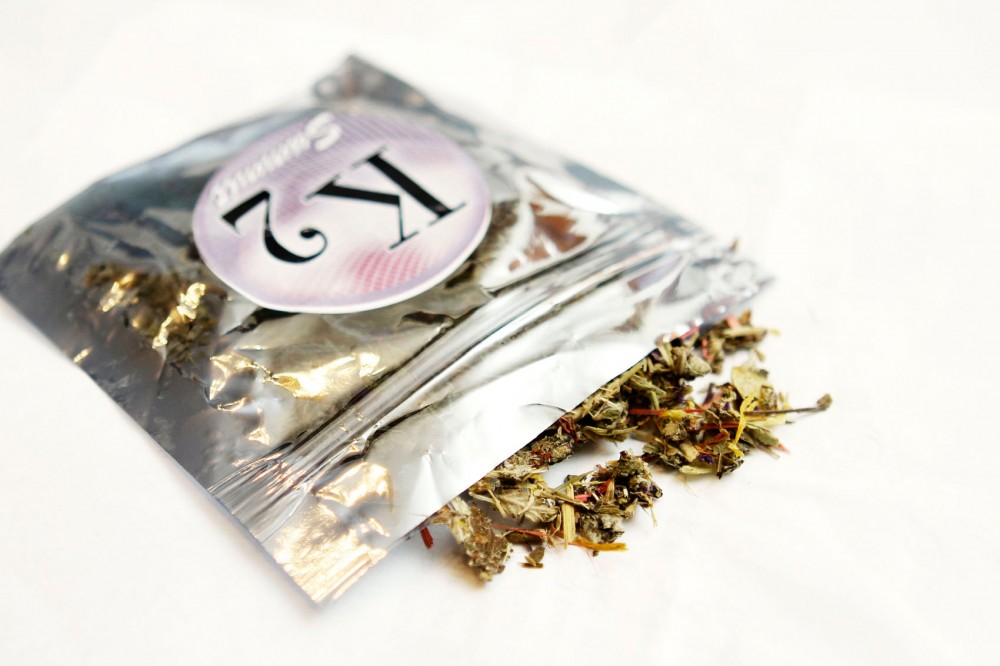While the federal government continues the fight over synthetic drugs, a Minnesota state legislator wants harsher penalties for selling them.
A bill heard in a state House of Representatives committee Thursday would make selling synthetic marijuana a felony under state law.
Currently, it is a gross misdemeanor for selling the substance and a misdemeanor for possession.
Rep. Bob Barrett, R-Shafer, said he brought the bill forth to discourage people around the state who continue to sell the substances.
“Currently some shop owners feel it’s worth it to pay the fine and continue selling these drugs,” Barrett said. “Maybe if the penalty is five years in prison, they’ll think differently.”
Barrett said a major problem in prosecuting those caught with selling synthetic marijuana was slight variations in the chemical makeup of the drug.
Because man-made synthetic marijuana does not occur naturally, Barrett said producers could alter the chemical makeup of the drug to avoid penalties under current law.
Barrett said state prosecutors can’t charge people because technically the altered drugs don’t fall under the current laws.
In an interview, Barrett said by changing the language so that it would include the different forms of the substances, the law is more encompassing and would avoid this problem.
Dr. Cody Wiberg, executive director of the Minnesota Board of Pharmacy, spoke Thursday about the dangers of the drug and misconceptions of its comparisons to marijuana.
“People who use marijuana, unless it’s cut with some contaminate, don’t typically end up in the emergency room,” Wiberg said. “People who use the synthetic cannabinoids often do.”
Wiberg said because the substances are often referred to as “fake pot,” they are considered less dangerous and are thought to be equivalent to marijuana in their effects.
But the effects can vary widely, Wiberg said, because of the inconsistent nature of how the drugs are made.
He said using the drug can result in paranoia and hallucinations and that some have even died from using it.
Last year, state legislators passed a law that would make the sale and possession of synthetic marijuana illegal. The law, which went into effect in July 2011, made selling the substance a gross misdemeanor and possessing it a misdemeanor.
In January 2011 Wally Sakallah, the owner of Hideaway, a head shop in Dinkytown, and other shop owners filed a lawsuit against the U.S. Drug Enforcement Administration over a year-long ban the DEA imposed on multiple chemicals found in synthetic marijuana.
Sakallah said they lost the suit and that he no longer sells the substances.
“I’m a guy that respects the law. If the community decides it’s not good, I will take it out.”
The year-long ban was set to expire Feb. 29, but the DEA announced Wednesday it would extend the ban for another six months, lasting until August.
“We continue to address the problems of synthetic drug manufacturing, trafficking and abuse. Our efforts have clearly shown that these chemicals present an imminent threat to public safety,” said DEA administrator Michele Leonhart in a release.
Laws on the sale and possession of marijuana vary, but under Minnesota law, the possession of a small amount of marijuana is a petty misdemeanor.
In addition, Barrett said the bill would give the state Board of Pharmacy the ability to classify the various forms of synthetic marijuana.
Under the new law, the board could place any variation of synthetic marijuana as a “Schedule I” drug.
“Schedule I substances are reserved for those substances with a high potential for abuse, no currently accepted medical use in treatment in the United States and a lack of accepted safety for use of the drug under medical supervision,” according to the DEA’s website.
Barrett said he hopes the harsher penalties will show people the drug’s dangers and curb its sale.
“If you sell these things you will be put in jail,” Barrett said, “and you will spend some time in prison.”

















